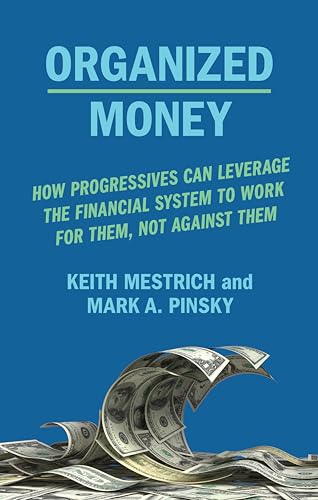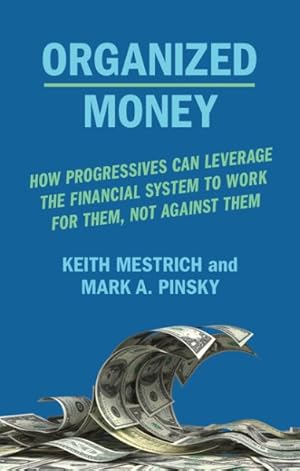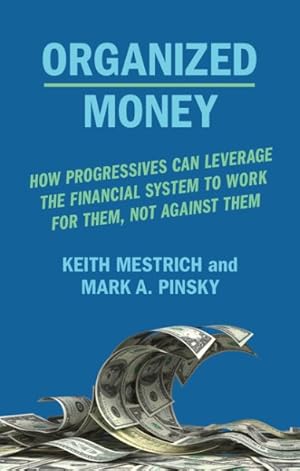mestrich keith pinsky mark (14 résultats)
CommentairesFiltres de recherche
Type d'article
- Tous les types de produits
- Livres (14)
- Magazines & Périodiques (Aucun autre résultat ne correspond à ces critères)
- Bandes dessinées (Aucun autre résultat ne correspond à ces critères)
- Partitions de musique (Aucun autre résultat ne correspond à ces critères)
- Art, Affiches et Gravures (Aucun autre résultat ne correspond à ces critères)
- Photographies (Aucun autre résultat ne correspond à ces critères)
- Cartes (Aucun autre résultat ne correspond à ces critères)
- Manuscrits & Papiers anciens (Aucun autre résultat ne correspond à ces critères)
Etat En savoir plus
- Neuf (5)
- Comme neuf, Très bon ou Bon (2)
- Assez bon ou satisfaisant (7)
- Moyen ou mauvais (Aucun autre résultat ne correspond à ces critères)
- Conformément à la description (Aucun autre résultat ne correspond à ces critères)
Reliure
- Toutes
- Couverture rigide (14)
- Couverture souple (Aucun autre résultat ne correspond à ces critères)
Particularités
Langue (1)
Livraison gratuite
Pays
Evaluation du vendeur
-
Organized Money: How Progressives Can Leverage the Financial System to Work for Them, Not Against Them
Edité par The New Press (edition Illustrated), 2019
ISBN 10 : 1620975041 ISBN 13 : 9781620975046
Langue: anglais
Vendeur : BooksRun, Philadelphia, PA, Etats-Unis
EUR 4,15
Autre deviseGratuit expédition vers Etats-UnisQuantité disponible : 1 disponible(s)
Ajouter au panierHardcover. Etat : Good. Illustrated. It's a preowned item in good condition and includes all the pages. It may have some general signs of wear and tear, such as markings, highlighting, slight damage to the cover, minimal wear to the binding, etc., but they will not affect the overall reading experience.
-
Organized Money : How Progressives Can Leverage the Financial System to Work for Them, Not Against Them
Vendeur : Better World Books, Mishawaka, IN, Etats-Unis
EUR 6,18
Autre deviseGratuit expédition vers Etats-UnisQuantité disponible : 2 disponible(s)
Ajouter au panierEtat : Good. Used book that is in clean, average condition without any missing pages.
-
Organized Money : How Progressives Can Leverage the Financial System to Work for Them, Not Against Them
Vendeur : Better World Books, Mishawaka, IN, Etats-Unis
EUR 6,18
Autre deviseGratuit expédition vers Etats-UnisQuantité disponible : 1 disponible(s)
Ajouter au panierEtat : Very Good. Former library book; may include library markings. Used book that is in excellent condition. May show signs of wear or have minor defects.
-
Organized Money : How Progressives Can Leverage the Financial System to Work for Them, Not Against Them
Vendeur : Better World Books, Mishawaka, IN, Etats-Unis
EUR 6,18
Autre deviseGratuit expédition vers Etats-UnisQuantité disponible : 1 disponible(s)
Ajouter au panierEtat : Good. Former library book; may include library markings. Used book that is in clean, average condition without any missing pages.
-
Organized Money: How Progressives Can Leverage the Financial System to Work for Them, Not Against Them
Vendeur : Housing Works Online Bookstore, New York, NY, Etats-Unis
EUR 4,41
Autre deviseEUR 4,40 expédition vers Etats-UnisQuantité disponible : 1 disponible(s)
Ajouter au panierEtat : Good. Light general wear. May have light notes/highlighting. dust jacket, shelf wear, bumped corners, scuffed, Hardcover.
-
Organized Money: How Progressives Can Leverage the Financial System to Work for Them, Not Against Them
Vendeur : Big River Books, Powder Springs, GA, Etats-Unis
EUR 5,81
Autre deviseEUR 3,40 expédition vers Etats-UnisQuantité disponible : 1 disponible(s)
Ajouter au panierEtat : good. This book is in good condition. The cover has minor creases or bends. The binding is tight and pages are intact. Some pages may have writing or highlighting.
-
Organized Money : How Progressives Can Leverage the Financial System to Work for Them, Not Against Them
Vendeur : GreatBookPrices, Columbia, MD, Etats-Unis
EUR 22,25
Autre deviseEUR 2,25 expédition vers Etats-UnisQuantité disponible : 1 disponible(s)
Ajouter au panierEtat : New.
-
Organized Money : How Progressives Can Leverage the Financial System to Work for Them, Not Against Them
Vendeur : GreatBookPrices, Columbia, MD, Etats-Unis
EUR 23,31
Autre deviseEUR 2,25 expédition vers Etats-UnisQuantité disponible : 1 disponible(s)
Ajouter au panierEtat : As New. Unread book in perfect condition.
-
Organized Money: How Progressives Can Leverage the Financial System to Work for Them, Not Against Them
Vendeur : Ria Christie Collections, Uxbridge, Royaume-Uni
EUR 21,40
Autre deviseEUR 13,73 expédition depuis Royaume-Uni vers Etats-UnisQuantité disponible : Plus de 20 disponibles
Ajouter au panierEtat : New. In.
-
Organized Money : How Progressives Can Leverage the Financial System to Work for Them, Not Against Them
Vendeur : GreatBookPricesUK, Woodford Green, Royaume-Uni
EUR 20,30
Autre deviseEUR 17,20 expédition depuis Royaume-Uni vers Etats-UnisQuantité disponible : 1 disponible(s)
Ajouter au panierEtat : New.
-
Organized Money : How Progressives Can Leverage the Financial System to Work for Them, Not Against Them
Vendeur : GreatBookPricesUK, Woodford Green, Royaume-Uni
EUR 23,03
Autre deviseEUR 17,20 expédition depuis Royaume-Uni vers Etats-UnisQuantité disponible : 1 disponible(s)
Ajouter au panierEtat : As New. Unread book in perfect condition.
-
Organized Money: How Progressives Can Leverage the Financial System to Work for Them, Not Against Them
Vendeur : Revaluation Books, Exeter, Royaume-Uni
EUR 21,92
Autre deviseEUR 28,66 expédition depuis Royaume-Uni vers Etats-UnisQuantité disponible : 2 disponible(s)
Ajouter au panierHardcover. Etat : Brand New. 294 pages. 8.75x5.75x1.00 inches. In Stock.
-
EUR 26,58
Autre deviseEUR 48,99 expédition depuis Allemagne vers Etats-UnisQuantité disponible : Plus de 20 disponibles
Ajouter au panierGebunden. Etat : New. Two leading figures from the world of finance show how progressives can take their money away from conservative financial institutions and put it to good, lasting social use.Über den AutorKeith Mestrich is th.
-
Organized Money; How Progressives Can Leverage The Financial System To Work For Them, Not Against Them
Edité par The New Press, New York, 2019
ISBN 10 : 1620975041 ISBN 13 : 9781620975046
Langue: anglais
Vendeur : Ground Zero Books, Ltd., Silver Spring, MD, Etats-Unis
Edition originale Signé
EUR 131,54
Autre deviseEUR 4,26 expédition vers Etats-UnisQuantité disponible : 1 disponible(s)
Ajouter au panierHardcover. Etat : Very good. Etat de la jaquette : Very good. Sam Levitan (authors photograph) (illustrateur). First Printing [Stated]. [8], 294, [2] pages. Illustrations. Authors' Note. Selected Resources. Notes. Index. Signed by the author sticker on front of DJ. Signed by both authors on the title page. Minor red soiling on top edge and fore-edge. Keith Mestrich is a left-of-center banking executive and former labor union official who promotes the role of financial institutions with left-of-center political principles as partners to implement left-wing policy initiatives. Mestrich is currently transitioning out of his position as president of Amalgamated Bank, a financial institution owned by Workers United, a division of the Service Employees International Union (SEIU). Amalgamated markets itself as being friendly to left-of-center causes and participates in union-aligned advocacy campaigns. Mark A. Pinsky led the $150 billion community development financial institution (CDFI) industry from 1995 to 2016. With a track record of aligning capital with social, economic, environmental, and political justice, he was the strategic leader for the industry's growth from $2 billion to $140 billion. He is the author and editor of several books, the co-author (with Keith Mestrich) of Organized Money: How Progressives Can Leverage the Financial System to Work for Them, Not Against Them (The New Press), and speaks regularly on finance and society. He lives in Philadelphia, where he runs Five/Four Advisors, a strategic advisory firm. Two leading figures from the world of finance show how progressives can take their money away from conservative financial institutions and put it to good, lasting social use. The U.S. financial system may be working for some people, but it isn't working for most of us who care about progressive causes. In fact, our financial system taps your money to pay for a conservative agenda. It's a heads-they-win, tails-you-lose game when the fees you pay to use your credit card finance fossil fuels even when you buy green products. Conservative money muscle shapes our culture, society, politics, and public policy. In this bold call to action, two leaders from the world of progressive finance propose a strategy to challenge this conservative dominance of the financial sector: organized progressive money. It's a $10 trillion plan for a full- service, market-scale progressive financial system. Mestrich and Pinsky explain how progressives can take control with financial institutions of their own and products that align with progressive values. Organized Money warns that until progressives organize their money, they will lose again and again while conservatives will keep winning. It's a crucial message for the next progressive era, starting with the make-or-break 2020 election cycle, where American voters will be presented with a choice between conservative market fundamentalism that leaves them out or inclusive restorative capitalism that is good for people as well as profits. Written in clear, engaging prose for non- financial readers and finance leaders alike, Organized Money is required reading for everyone ready to confront the excesses of conservative power and influence. Derived from a Kirkus review: An exploration of how politically and socially progressive individuals can invest their money with financial institutions seeking to alleviate socio-economic inequities. Mestrich is the president of Amalgamated Bank, described as "the nation's leading socially responsible bank," and Pinsky is a former leader of what is known as the community development financial institution industry. The authors devote much of the book to educating their readers on the financial system. They understand that even the most politically progressive individuals tend to deposit their savings in nearby bank branches due to habit and/or convenience as well as buy insurance from massive corporations that feed elected officials tied to anti-egalitarian conservative politics. "Organized money holds immense power and influence, which we call money muscle," write the authors. "The U.S. financial sector is the dominant economic, policy, political, social, and cultural force in the world. It largely determines who in the private and public sectors gets to do what with the extraordinary amount of money in play. And it is deeply and proudly conservative." Mestrich and Pinsky are convinced that progressives control enough moneyâ"though not nearly as much as conservativesâ"to create their own financial institutions, which will then practice socially responsible investing. One example is Mestrich's Amalgamated Bank, another is the credit union, an institution controlled by its members. The authors provide many other concrete examples of specific enterprises that organize money so it can be leveraged in ways that most conservative politicians and financiers would disdain. The authors note that while the 2008 financial crash raised awareness of the importance of pulling money away from traditional banks, regulators failed to make any significant improvements or install effective safeguards. A thought-provoking primer.








